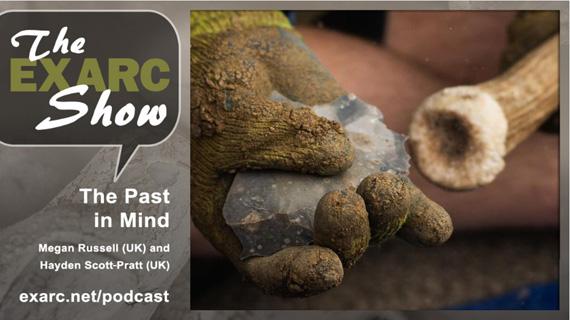The Past in Mind

Megan Russell (UK) and
Hayden Scott-Pratt (UK)
In this month's episode of #FinallyFriday, we're discussing how experimental archaeology projects can help in developing well-being! Our guests present their experiences running different experimental archaeology projects that explore issues related to mental health. They deal with questions of what actually is "well-being"? How can we create more longevity for projects dealing with well-being? What impact does physical setting have on the project? Tune in to find out the answers, and discover some great examples of the positive societal impact of experimental archaeology. Your host is Jess Shaw.
 | Megan is a PhD student leading the Experimental Health Project at Bournemouth University. After working in commercial archaeology, Megan saw the potential of experimental archaeology as a tool for community engagement and provides a way to increase mental health. In previous research, archaeology involving well-being has been centred around excavations or landscapes. Megan is exploring how other aspects of archaeology such as craft can contribute to mental health as a more accessible medium. Megan's EXARC profile. |
 | Hayden is Curator at the Hengistbury Head Visitor Centre, responsible for the care, conservation, and interpretation of artefact collections spanning over 12,000 years from the Upper Palaeolithic to the Roman period. Currently running the ‘Living in the Round’ experimental archaeology Wellbeing project, which aims to bring together local people through the medium of community-focused, experimental archaeology. Visiting Research Fellow at Bournemouth University conducting research into ancient materials and technology in European prehistory by the application of microscopic and chemical techniques. PhD research focused on Iron Age metallurgy in Britain and Europe, focused on copper smelting, and what this can tell us about exchange, social structures, and identity. |
